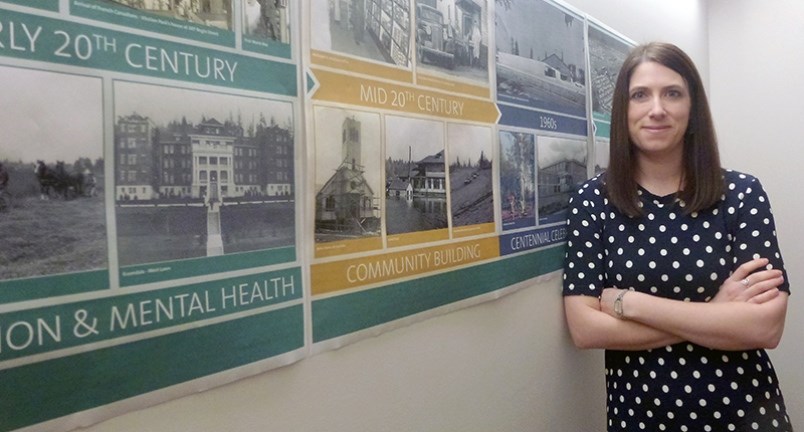Coquitlam’s archives program recorded another banner year that ended with a move to a bigger space for storage and for the public to search past content in person.
Yesterday (Monday), in a report before council-in-committee, city archivist Emily Lonie talked about the success of the program, which launched six years ago, and how it has grown.
Last year, the city archives received 33 fonds (documents) and collections from a variety of donors and community groups such as the Riverview Hospital Historical Society; ArtsConnect, an arts umbrella that folded last month; the Coquitlam Foundation; Burquitlam Lions Club; and the Coquitlam Teacher-Librarians Association.
As well, staff added more than 600 full-resolution images and documents to Quest, the online digital portal that saw twice as much traffic in 2018 as the previous year.
As a result, there are now some 1,800 photos and documents in high resolution online. To up page views, three online exhibits came out to highlight the archival collections for students, genealogists and other researchers: Scrapbooks - Fragile Time Capsules; May Day - The Celebration of Spring; and Bird’s Eye View: Coquitlam From Above.
With a grant from UBC, staff last year were also able to digitize council committee records dating back 50 years, from 1946 to 1996. The minutes cover decision-making on topics like parks, land use, bargaining and zoning.
As well, archives staff was also able to save a map from 1937 — with the help of conservators — showing the original layout for Robinson Memorial Cemetery.
Lonie also undertook outreach work in the community and in her role as secretariat for the Lower Mainland Municipal Archivists Forum, which met twice last year, and continued her two-year term as a member of the Awareness Strategy Task Force, one of three national groups convened by the steering committee on Canada’s Archives.
As for 2019, the archives program plans to increase acquisitions — making use of its expanded facility next to the City Centre branch of the Coquitlam Public Library — as well as implement a digital preservation program, and raise its level of access.
“We are looking forward to welcoming people to the new space starting in February.”



